|
I recently spoke with a sales leader who lamented the fact that her team did not have effective conversations with prospects and clients. I suggested three factors from Answer Intelligence (AQ)™ to have more influential sales conversations #1 Sales is a ConversationQuestion-based sales methods are so prevalent, that we have lost the forest from the trees. Machette in hand, generations of sales reps have been trained in question-based sales approaches (deep in the trees), which translates into an ethos of asking more and more questions of the prospect. However, what has been lost is the big picture (the forest). Gong’s data elucidates the big picture perspective by pointing out that as the seller asks more questions, the win-rate goes down (not up)! This paradox is resolved easily when you view sales as a conversation (question and answer exchange) between a seller and buyer. From this vantage point, each side asks and answers questions. As question-rate goes up, at the extreme a conversation is transformed into an interrogation of questions. Separate Gong data has also found that when sellers and buyers talk equally win rates increase. Upon reflection, sales as a conversation is obvious. Imagine a thought experiment… When you go to dinner with a friend, or a have a meeting with colleagues… you will notice that these conversations are effective when everyone asks and answers questions, and when speaking is also balanced. The same is true for sales conversations. If sales conversations are going to be balanced (questions + ANSWERS), sales reps need to apply critical attention to answering more effectively. In sum, the first step toward better conversations is for sales reps to increase their awareness that both questions and answers are important. AQ focuses upon a new science of answers to increase sales influence during conversations. To increase your AQ awareness, take the FREE Explore Sales AQ test. #2 Use the 5 High AQ PracticesOnce awareness is increased (step 1), the next step is to use the 5 High AQ Practices. Based upon research with expert communicators, High AQ Practices are answering techniques that sales professionals can use to increase their influence with others. For example, High AQ Practice 2 is to answer important why-, what-, and how-questions twice to appeal to the logical side of the brain and also the creative side of the brain. For example, if a prospect asks, “Why should I use your product?”, this why-question can be answered with a story combined with a theory (which is business strategy). Your product might be an employee engagement platform, and your theory could be that “employee engagement causes employee retention.” By discussing the story, you make the emotional connection. Followed by theory, you can make explicit the logic of your story so it is not missed. #3 Be a Student of AnswersThe original AQ research was based upon studying the top golf instructors in the world as rated by Golf Digest and Golf Magazine. This was an expert study, those in the upper half of the 99th percentile of their profession. It was clear that they were students of answers. For example, one of the top golf instructors was particularly adept at metaphors. We asked him, “Do you always get the metaphor right?” He replied, “Yes, but if I don’t I have another metaphor ready.” His response, is very telling, experts don’t have “THE answer”, they have multiple answers for each of the six answer types (story, metaphor, theory, concept, procedure, action).
If you are student of answers, you have a portfolio of each of the answer types. As a sales professional, you need multiple stories to influence, or you can point out multiple key actions that distinguish that differentiate your service or products. It is one thing to know that a how-question is answered with a procedure or action (see point #2), but point #3 reminds us that the substantive answers matter, and that you must work to develop these answers. For example, one of the top golf instructors had a library of 3,500 books. This golf instructor wanted to learn as many answers as possible, so he could be more influential in his golf lessons. This instructor studied everything related to golf (such as the physics of golf) and related disciplines (like psychology), to far flung domains of life like Ancient Greece. He was well informed, he was interesting, he could provide any of the answers. In the sales context, think about answers that relate to your product or service, your client’s industry, a specific buyer role, or anything else relevant to being an interesting conversationalist. Being a student of answers means that you study the world around you to increase your influence.
1 Comment
|
Access Octomono Masonry Settings
AuthorDr. Brian Glibkowski is the author of Answer Intelligence: Raise your AQ. Archives
October 2022
Categories
All
|
About AQ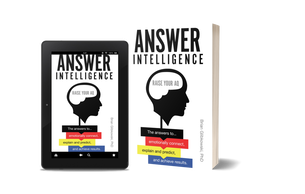
Answer Intelligence (AQ)™ is the ability to provide elevated answers to explain and predict in a complex world, emotionally connect, and achieve results. Are you conversation ready?
Meet HarperHarper's story illustrates the transformative power of AQ in her own career and in the success of her organization.
|
AQ Upskilling PlatformAI is machine thinking. AQ is human thinking (developed based on academic research) in terms of simple questions (why, what, how, when, where, who) and answers (concept, metaphor, theory, story, procedure, action) that elevate human-to-AI and human-to-human communication.
|
Quick Access LinksBuy the Book
Explore AQ (Free Assessment) AQ TEDx Video Professional Services Firms + AQ Brian Glibkowski, PhD - AQ Creator Meet Harper - Overview Video Meet Mark - Software Case Reasons You Need AQ |
Featured |

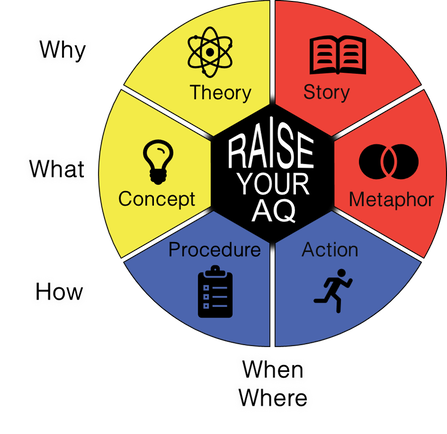

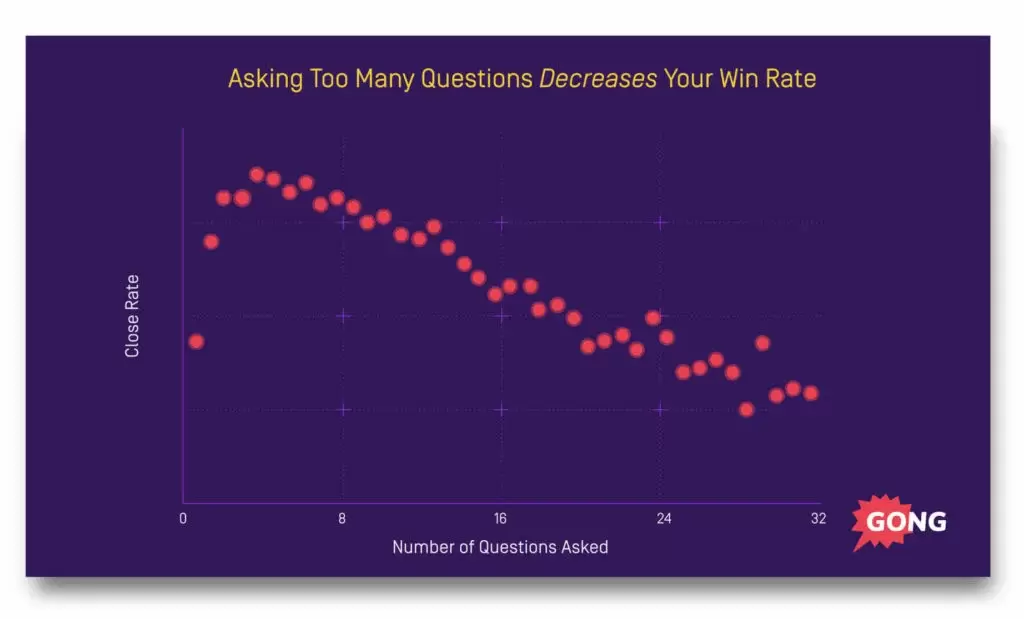
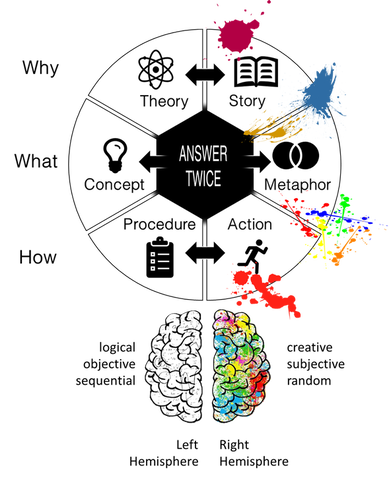
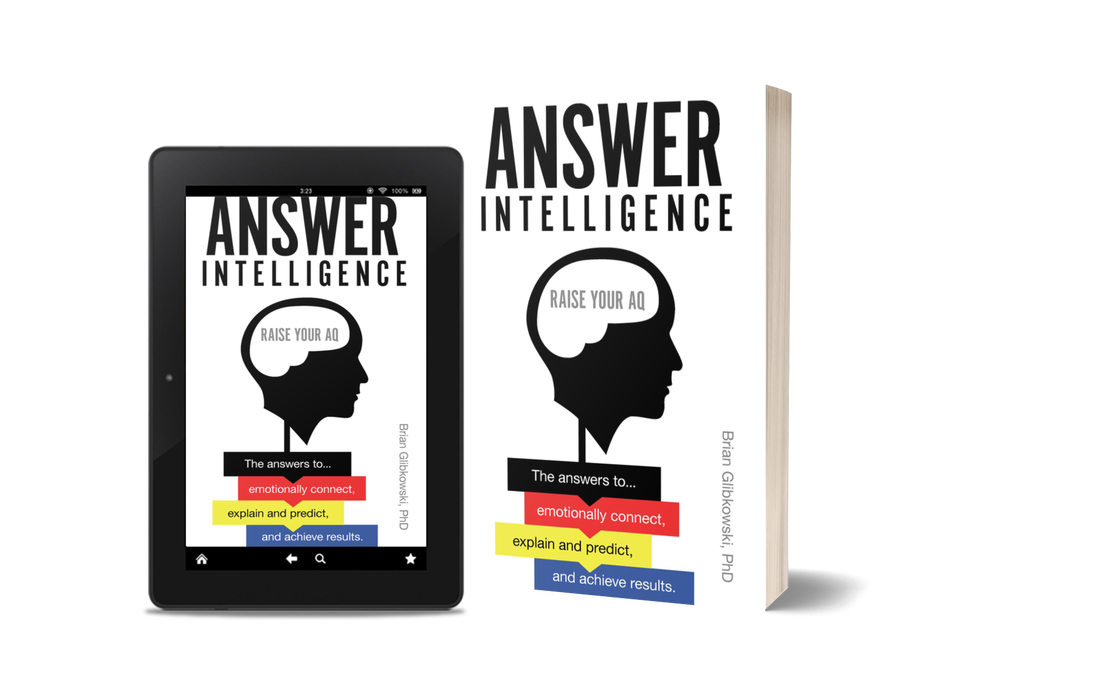
 RSS Feed
RSS Feed